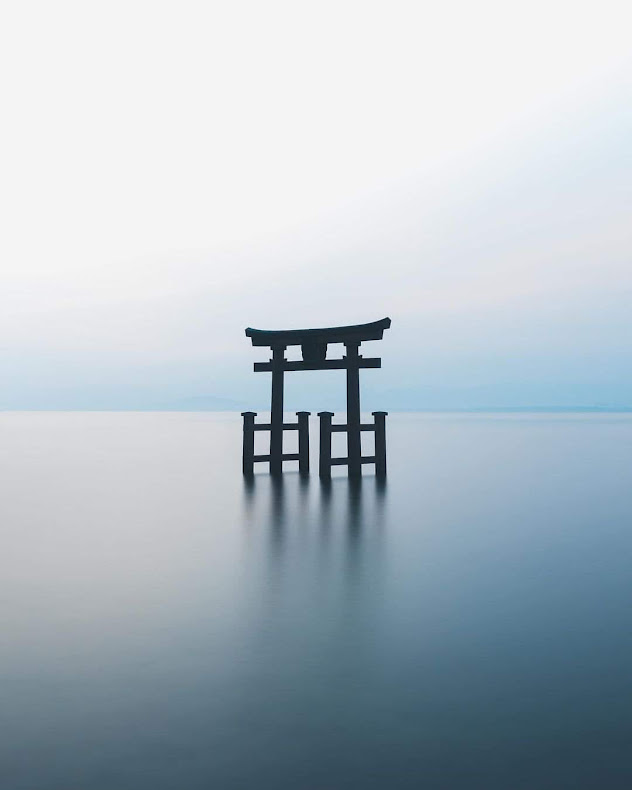Shinto Christianity

The Tokyo Olympic Games have me thinking about Shintoism, and its implications for Christianity.
Shinto is the native faith of Japan, and most religious studies books would describe it to you as a type of animism. In Shinto understanding, most everything in life and nature has a kami, or divine spirit within it or associated to it. Kami are personifications and manifestations of the natural world, and as such they both surround and are related to human beings, often as our ancestors, despite being generally hidden from our sight.
Thus, everything in life and nature has a spark of divinity within it, a little spirit worthy of reverence and respect. Japan is littered with Torii gates, the symbols of Shinto, serving to remind and alert us to the presence of the kami whenever we enter someplace sacred.
The best way for Westerners to approach Shintoism, in my opinion, is to look to the fairy faith of Europe. Fairies, in folklore, are nature spirits that both inhabit and personify the natural world. They are related to human beings, both living and dead, and must be afforded respect, as they can be just as capricious, beautiful, and deadly as Nature herself. Think of a fairy—more Brothers Grimm than Disney—and you’ll understand the kami.
Note that just as the fairy faith of Ireland is able comfortably to coexist with Celtic Christianity, so does the Shinto faith of Japan happily cohabitate with imported Buddhism. The natural and the supernatural blend and blur together.
At first blush, animism seems the polar opposite of monotheism. One finds gods in everything, while the other finds only One God. But as a favorite theologian of mine recently mused, monotheism implies animism. Here’s what he meant.
God knows everything, and is present everywhere. This is a basic tenet of classical theism, shared by Christians, Hindus, Jews, Muslims, Platonists, and everybody in between. So then, God must know what it is to be a rock, or a tree, or a stream; He must know exactly what that’s like. Thus within the Spirit of God exists the spirit—that is, the essence and awareness—of a rock, or a tree, or a stream; or a star, or a galaxy, or a universe, for that matter. It’s all in God, and so God is in it all. God’s perfect knowledge of a thing is the spirit of that thing.
On the human scale, our spirit is the part of us that is deeper than the body, deeper than the mind; the part that can commune with infinity, transcendence, non-dualism; the part that says “I am.” This is what the Bible calls the Image of God in us, the Spirit breathed into Adam in the beginning. The Spirit is God’s creative power, the source and font of all Creation, in whom we live and move and have our being. And God knows this spiritual union with all of Creation, because God knows what it is to be each and every thing.
So if everything has a spirit—as the omniscience of God would imply—then everything is at heart sacred, for at its deepest level each thing within Creation is created and sustained in union with God. God-in-it is its spirit. And there’s a bit of God in everything.
It broke my head a little, the first time I read this argument. But it makes a fascinating sort of sense. To know that my spirit, my deepest being, is my union with God (my Image of God, my Breath of God) and that your spirit, who you most deeply, truly are, is your union with God, is to see then the face of Jesus in everyone we meet, just as the Church Fathers insisted that we must. It is to make sense of the greeting “Namaste,” used by Christians and non-Christians alike in India, and which means, “The divine in me recognizes the divine in you.” God-in-me loves God-in-you.
How would we treat our neighbor if we were truly to realize that God is in our neighbor, His Spirit in union with our neighbor’s spirit, knowing just what it is to be that person? How would we treat our world, knowing that God is in the rock, the tree, the stream; that God knows what it is to be a star looking down, a galaxy swirling, an atom splitting? At the very least, I should hope that we would treat Nature less as a commodity to be exploited, and more as a sister to be stewarded and loved. That’s certainly how St Francis saw her.
There’s a bit of God in everything; His Son in everyone we meet; His Spirit in everything we know. Little wonder, then, that in the Bible loving God and loving our neighbor are treated as one and the same; that loving our Creator means to steward His Creation. This is how most Christians viewed the world for most of history: as sacred, as enchanted.
The Christian and the Shinto are not so far apart. Indeed, given our mutual Creator, and the mutual Creation we inhabit, I think it’s fair to say we have a lot to share and to learn.
In Jesus. Amen.
Comments
Post a Comment